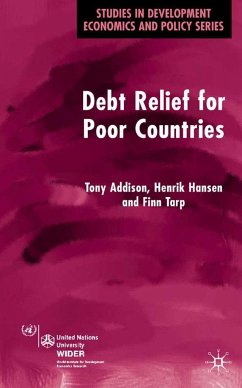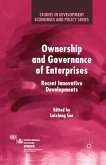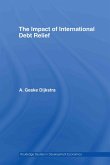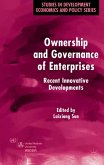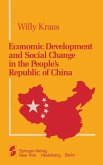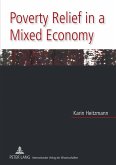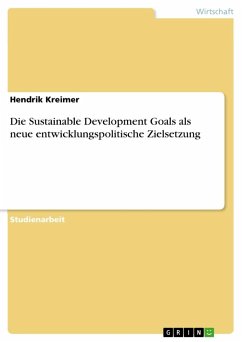After a massive international campaign calling attention to the development impact of foreign debt, the Heavily Indebted Poor Countries (HIPC) initiative is now underway. But will the HIPC Initiative meet its high expectations? Will debt relief substantially raise growth? How do we make sure that debt relief benefits poor people? And how can we ensure that poor countries do not become highly indebted again? These are some of the key policy issues covered in this rigorous and independent analysis of debt, development, and poverty.
'It seems that with each new book it issues, UNU-WIDER further establishes its reputation as the intellectual leader among international organisations. This volume on debt is particularly outstanding. The chapters by the editors and their co-authors are quite impressive. The book should be read both by the novice and specialist.' - John Weeks, Professor of Development Economics, SOAS, University of London, UK
'The international financial institutions agreed to debt relief for the poorest countries, under pressure from the countries themselves and a vigorous NGO campaign. This extremely useful book provides in-depth analysis of the results of the debt relief contained in HIPC: they are positive, but small. Unfortunately, as the book demonstrates, HIPC debt relief will not provide the solution to the development problems of most poor countries.' - Frances Stewart, Director, Queen Elizabeth House, University of Oxford, UK
'Can debt relief be a powerful tool for advancing human rights, helping to save literally millions of lives, and for laying the foundations for economic growth, as its proponents often claim? In this pioneering volume, a group of economists challenge some of these unquestioned assumptions. Using empirical evidence, they concluded that: it is difficult to measure accurately the effect of debt relief on economic growth and poverty reduction; that the degree to which debt relief can contribute to poverty reduction largely depends on the existence of hospitable domestic and international policy environment; and that the quality of national institutions determine the effectiveness of debt relief on the ground. These are important and timely contributions that will deepen the debate on debt relief and poverty reduction.' - Fantu Cheru, Professor, School of International Service, American University, USA
'...the papers collected in this volume represent a very welcome addition to the literature.' - Andrew Mold - Journal of International Development
'The international financial institutions agreed to debt relief for the poorest countries, under pressure from the countries themselves and a vigorous NGO campaign. This extremely useful book provides in-depth analysis of the results of the debt relief contained in HIPC: they are positive, but small. Unfortunately, as the book demonstrates, HIPC debt relief will not provide the solution to the development problems of most poor countries.' - Frances Stewart, Director, Queen Elizabeth House, University of Oxford, UK
'Can debt relief be a powerful tool for advancing human rights, helping to save literally millions of lives, and for laying the foundations for economic growth, as its proponents often claim? In this pioneering volume, a group of economists challenge some of these unquestioned assumptions. Using empirical evidence, they concluded that: it is difficult to measure accurately the effect of debt relief on economic growth and poverty reduction; that the degree to which debt relief can contribute to poverty reduction largely depends on the existence of hospitable domestic and international policy environment; and that the quality of national institutions determine the effectiveness of debt relief on the ground. These are important and timely contributions that will deepen the debate on debt relief and poverty reduction.' - Fantu Cheru, Professor, School of International Service, American University, USA
'...the papers collected in this volume represent a very welcome addition to the literature.' - Andrew Mold - Journal of International Development

